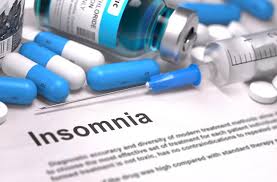- Home
- Editorial
- News
- Practice Guidelines
- Anesthesiology Guidelines
- Cancer Guidelines
- Cardiac Sciences Guidelines
- Critical Care Guidelines
- Dentistry Guidelines
- Dermatology Guidelines
- Diabetes and Endo Guidelines
- Diagnostics Guidelines
- ENT Guidelines
- Featured Practice Guidelines
- Gastroenterology Guidelines
- Geriatrics Guidelines
- Medicine Guidelines
- Nephrology Guidelines
- Neurosciences Guidelines
- Obs and Gynae Guidelines
- Ophthalmology Guidelines
- Orthopaedics Guidelines
- Paediatrics Guidelines
- Psychiatry Guidelines
- Pulmonology Guidelines
- Radiology Guidelines
- Surgery Guidelines
- Urology Guidelines
Antidepressants on their own not effective in Insomnia

No concrete evidence has been found for long-term use of anti-depressants in improving insomnia, according to a new review. Insomnia disorder is a subjective condition of unsatisfactory sleep (e.g. sleep onset, maintenance, early waking, impairment of daytime functioning). It impairs quality of life and is associated with an increased risk of physical and mental health problems including anxiety, depression, drug and alcohol abuse, and increased health service use.
Hazel Everitt and his associated conducted a study to assess the effectiveness, safety, and tolerability of antidepressants for insomnia in adults which led to the findings.
Randomised controlled trials (RCTs) of adults (aged 18 years or older) with a primary diagnosis of insomnia and all participant types including people with comorbidities. Any antidepressant as monotherapy at any dose whether compared with placebo, other medications for insomnia (e.g. benzodiazepines and 'Z' drugs), a different antidepressant, waiting list control or treatment as usual.
The study identified 23 randomized controlled trials that included a total of 2806 adults with a primary diagnosis of insomnia to examine the relationship between use of antidepressant and improvement in insomnia. The studies included for analysis compared antidepressant monotherapy (at any dose) with placebo, other insomnia drugs (e.g. benzodiazepines), other antidepressants, waiting list control, or "treatment as usual."
Three of the studies compared selective serotonin reuptake inhibitors (SSRIs) with placebo. Improvements in subjective sleep measures at 6 weeks and 12 weeks were observed with paroxetine 2 of the studies, however, no differences were seen in the fluoxetine study.
Tricyclic antidepressants (TCA) were compared with placebo in 6 studies (5 with doxepin and 1 with trimipramine). Pooled results from 4 of these studies indicated a moderate improvement in subjective sleep quality over placebo. Additionally, TCAs were associated with improved sleep efficiency and increased sleep time but had a very little impact on sleep latency.
With regard to other antidepressants, 3 studies (370 patients) involving trazodone were pooled and indicated a moderate improvement in subjective sleep outcomes, however, 2 studies which measured polysomnography found little or no difference in sleep efficiency.
The study concluded that there may be a small improvement in sleep quality with the short-term use of low-dose doxepin and trazodone compared with placebo. There was no evidence for amitriptyline or for long-term use of an antidepressant for insomnia.
The study was published in Cochrane Library
For more details click on the link: DOI: 10.1002/14651858.CD010753.pub2

Disclaimer: This site is primarily intended for healthcare professionals. Any content/information on this website does not replace the advice of medical and/or health professionals and should not be construed as medical/diagnostic advice/endorsement or prescription. Use of this site is subject to our terms of use, privacy policy, advertisement policy. © 2020 Minerva Medical Treatment Pvt Ltd